I usually give myself until the Oscar ceremony to do any best-of-the-year lists. Mostly because I like to be as thorough as I can be. This year, however, lent me a few extra hurdles to jump over, which meant it took me a little bit longer than normal. Buying my first home, a litany of illnesses, the loss of a close friend, and general exhaustion with the movies of 2023. But, hey, here we are at the end of March and, honestly, movies don’t just vanish once the year is out so why not finally go about publishing my best documentaries of the year list?
This year in documentary lacked the sort of movie like All the Beauty and the Bloodshed or Collective that loomed over the entire end-of-year discussion and therefore there was no clear number one title of the year. For me, at least. But that didn’t mean there weren’t many to choose from. Most critics groups lingered on the sort of American movies that the Academy does not gravitate towards. Some didn’t like that the Academy ignored them all, but if the industry is so hung up on American features not being nominated then maybe they need to fund and release more challenging works. Just a thought.
I wanted to start, however, with a few special citations before we get to the top 15 documentaries of the year.

Best movie that isn’t a documentary, but could be: THERAPY DOGS (dir. Ethan Eng)
I received press emails about this film a full year after I had seen it. They were claiming it was a documentary. I didn't remember it that way and I didn't quite believe them. Even by my own standards, I’ve shifted on what does or does not make a documentary and Ethan Eng’s rather incredible Therapy Dogs didn’t qualify. If you liked Aaron Katz’s Dance Party USA or Gus Van Sant’s high school movies, then Eng’s movie might be for you! Check it out. But if anybody wants to convince me otherwise, please do so.
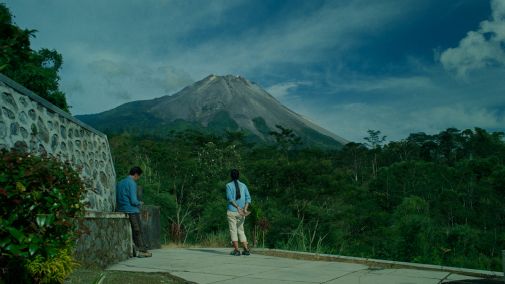
Best documentary without international distribution: MONISME (dir. Riar Rizaldi)
Given what I literally just said, citing this Indonesian film may seem odd given it is very firmly on the line of docu-fiction. But, hey, it’s my list and I’ll do what I want to. The most interesting use of form that I saw maybe all year (at the Adelaide Film Festival) that I really hope manages to find a life beyond the circuit. A fantastically avant garde work that is fabulously shot and sonically designed. I'm not entirely sure what it all means, bit I was transfixed as it got there.
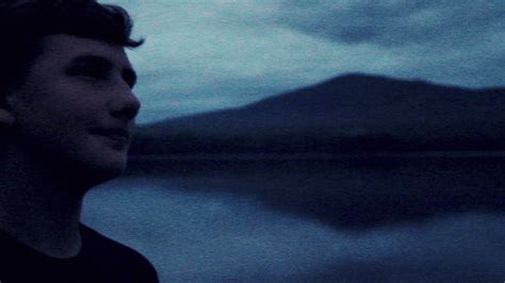
Best short documentary: LITTLE BOY LOON (dir. Kevin Bay and Julia Thompson)
A film about a boy who can make loon calls is not necessarily what I would gravitate towards. But directors Bay and Thompson somehow manage to evoke a whole raft of feelings around adolescence, nostalgia, the passing of time on this strange place called Earth…mesmerising.
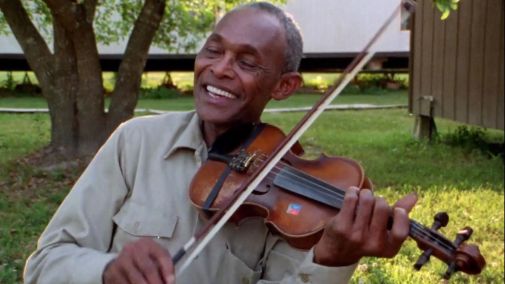
Best documentary restoration: I WENT TO THE DANCE (dir. Les Blank and Chris Strachwitz)
There were a lot of classics restored and rereleased in 2023, but of those that I had never seen before, I fell most madly for I Went to the Dance about the Cajuns and the Creoles who filled Louisiana with music like nothing you’ve ever heard before. Even on a digital Vimeo screener link, it looked and sounded amazing. It’s almost unfair to other movies.
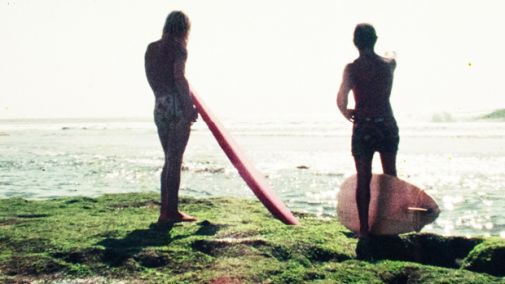
Best Australian Documentary: YOU SHOULD HAVE BEEN HERE YESTERDAY (dir. Jolyon Hoff)
It always surprises people when I say it, but I love old surfing documentaries of the 1970s. I do not surf and I am not a particularly athletic person in general. I was then perhaps predisposed to liking this archive-heavy doc that is compiled out of 200 hours of scanned footage (mostly professional but also some home movies) and film clips from the likes of Crystal Voyager, Morning of the Earth, Women in the Surf and so many more. This year, I found docs from my home country were largely disappointing (Allan Clark's The Dark Emu Story is innocent!), but this is a loving ide to an era of not just Aussie life, but also Aussie film culture and one that all too often gets ignored by the history books. It has a shaggy quality, too, that the replicated its era. Largely absent of traditional narrative, it also boasts an incredible score by Headland. It’d be in the below list if it got a release outside of the Adelaide Film Festival.
And just a few others that I thought warranted attention:
20 DAYS IN MARIUPOL (dir. Mstyslav Chernov)
32 SOUNDS (dir. Sam Green)
ANONYMOUS SISTER (dir. Jamie Boyle)
GREAT PHOTO, LOVELY LIFE (dir. Rachel Beth Anderson and Amanda Mustard)
ON THE ADAMANT (dir. Nicolas Philibert)
STILL: A MICHAEL J. FOX MOVIE (dir. Davis Guggenheim)
ROCK HUDSON: ALL THAT HEAVEN ALLOWED (dir. Stephen Kijak)
THE TAKING (dir. Alexandre O. Philippe)
THE 15 BEST DOCUMENTARIES OF 2023
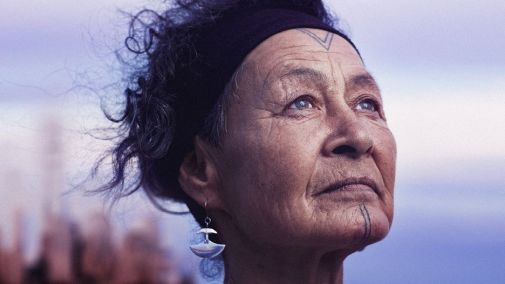
15. TWICE COLONIZED (dir. Lin Alluna)
In an exceptionally strong year for documentaries about First Nations people (there are four on just this list) I thought it fitting to start the list with Twice Colonized. What it lacks in clear narrative structure, it gains in the beautiful and painful observations of its lead subject (an admittedly prickly Inuk woman, Aaju Peter). In her directorial debut, Alluna allows her the dignity to process her feelings about all manner of difficult subjects in any way she likes, which—judging from some of the comments I’ve read about the movie—some viewers found distasteful or, ahem, unlikeable. But I thought it was the only appropriate film to make, helped a lot by the wonderful arctic light camerawork and incredible music score by Johannes Malfatti and OIivier Alary.
Watch now on CBC in Canada. Not currently streaming in the USA.
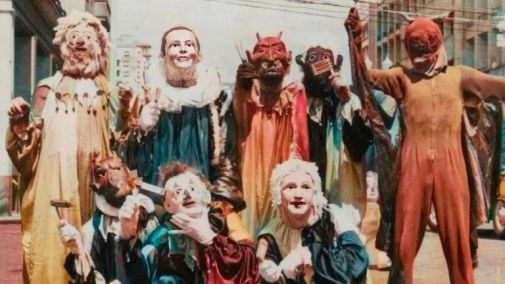
14. PICTURES OF GHOSTS (dir. Kleber Mendonça Filho)
At this stage, I feel as if I have seen documentaries about beloved theatres and film culture for most of the world’s nation from Afghanistan to Zimbabwe. Filho’s Pictures of Ghosts, however, is one that feels entirely unique—helped, quite a bit by its director’s own career as one of Brazil’s great filmmakers of the modern era, and his ability to weave more personal and rich narratives throughout. It is mournful and reverential and sparks with the sort of love for cinema that can turn anybody into a director.
Currently in limited theatrical release.
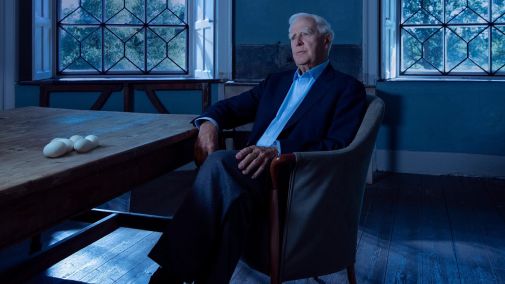
13. THE PIGEON TUNNEL (dir. Errol Morris)
As is too rarely the case with biographies of this sort, The Pigeon Tunnel is less a dictated history of events but instead a conversation. And it helps that for this conversation, Morris has himself a man who was still whip smart, his lips curling ever so devilishly when he knows he has said something particularly witty. Like his books, it gets at John le Carré (aka David Cornwell) through some less-than-direct means but in doing so tells a more captivating story. I gather I liked this one a lot more than others, but I’ll take it.
Watch now on Apple.
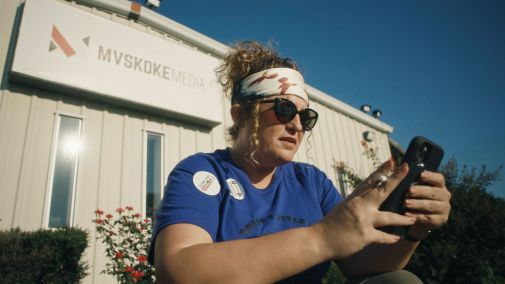
12. BAD PRESS (dir. Rebecca Landsberry-Baker and Joe Peeler)
I’m genuinely surprised this film didn’t catch on more broadly. It’s not for lack of important themes well told. But such are the whims of documentary filmmaking, I suppose. Like Marion Lipschutz and Rose Rosenblatt’s Young Lakota from ten years earlier about abortion rights within American indigenous communities, Bad Press tackles the issue of freedom of the press, free speech and the alarming rise of fascistic ideals within communities large and small such as it is here with the Muscogee Nation.
And while Peeler and Landsberry-Baker’s film maybe lacks the propulsive cinematic quality that made something like Collective the best film of its year, Bad Press nonetheless has a steely resolve and clear-sightedness that makes it compelling. Its makers landed on the sort of small miracle that make stumbling across the film feel like an act of political fortitude at a time when such things are remarkable hard to come by.
Not currently streaming.

11. JOURNEY TO EPCOT CENTER: A SYMPHONIC HISTORY (dir. Kevin Perjurer)
If you know where to look, there is an entire subsection of online nonfiction that is pushing the boundaries of what these films can look like. Whether that is longform titles like The History of the Seattle Mariners by Jon Bois or essay shorts like Chloé Galibert-Laîné Watching The Pain of Others or strange found-footage concoctions like Jane Schienbrun’s A Self-Induced Hallucination to name just a few from recent years. Journey to EPCOT Center: A Symphonic History comes from the Defunctland channel on YouTube, but it is several steps beyond anything that they have before across their efforts to tell the story of everything Disney theme parks. A production as ambitious as the EPCOT Centre itself, this is striking documentary work that goes beyond mere fan-service and nostalgia, but attempts to use film language in unexpected ways.
Watch on YouTube.
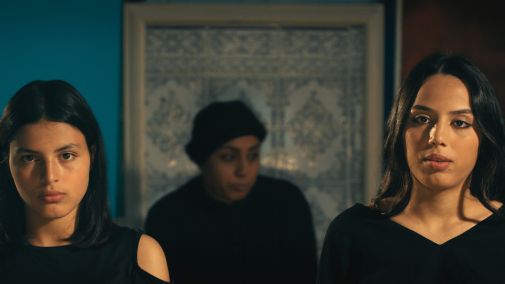
10. FOUR DAUGHTERS (dir. Kaouther Ben Hania)
The only one of the five Oscar nominees to make the list. No shade to the rest of them as they are mostly all good movies (I wasn’t a fan of The Eternal Memory, though). But this film about a Tunisian family of women split down the middle on ideological lines of the most extreme sort was, I felt, the quiet knockout of the bunch. The set up that Kaouther Ben Hania utilises to tell their story can take a bit of getting used to, but it is a storytelling gamble that pays off in allowing us into an unfamiliar world.
Watch on Netflix, YouTube, Amazon, Apple.
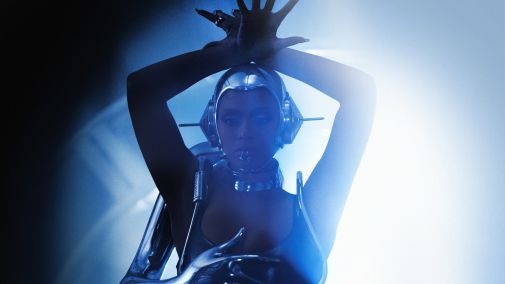
9. RENAISSANCE: A FILM BY BEYONCÉ (dir. Beyoncé)
Here’s the thing: Beyoncé isn’t a particularly interesting personality. Great songs, beautiful songs, but it's hard to embrace her as so many have when the visage of perfection never slips. It’s to her own and Renaissance’s credit then that we get the most compelling, watchable version of her yet as a boss, a director and creative genius. The album and tour that this concert film documents were engineered to appeal to my particular interests, but you only need to watch any number of other similar live music documentaries (including one very big one from 2023) to see how it is a cut well above most with genuinely thrilling editing choices and bold sound work that hits right in the guts where a big stadium concert ought to. The heavily scripted narration threatens to push it into self-worship, but by that stage the film has well and truly cast a pulse-racing spell as a big screen event.
Not currently streaming.
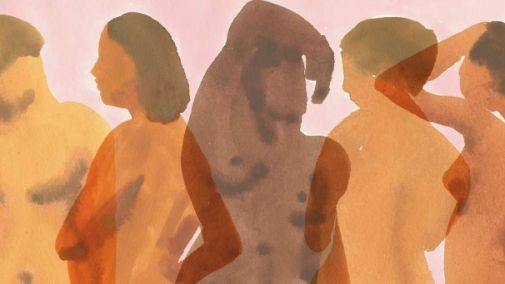
8. OUR BODY (dir. Claire Simon)
From my review: “At nearly three hours… its length and its attention to detail is about patience. Giving not just the viewer the opportunity to invest in the stories of these women (and a couple of trans men), but to allow the patient the time to express themselves about a diagnosis and the dignity of hearing their worries and their pains. It grants them the chance to be seen in conversations that are too often kept behind locked doors rather than out in the open. Conversations about life, death and the all the mess that comes in between.”
Watch on Mubi, YouTube, Apple.
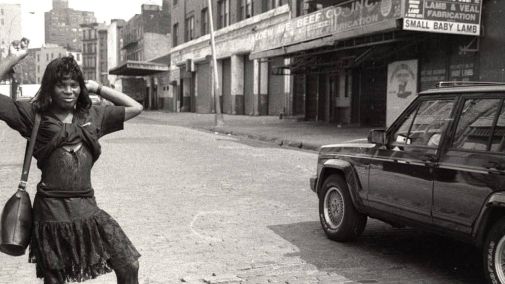
7. THE STROLL (dir. Zackary Drucker and Kristen Parker Lovell)
Kokomo City got the more press, but for my money this was the best black-and-white documentary abouts transgender sex workers of the year. That may seem like a particularly unexpected niche, yet here we are. Told by one of the women at its core, The Stroll revisits the Meatpacking District of New York City and those who turned its streets into a well familiar haunt. Now gentrified into an urban Disneyland with fancy restaurants, bougies bars and overpriced apartments where abattoirs used to sit full of carcasses and blood-splattered footpaths (thank you Samantha Jones on Sex and the City), these women remember a (relative) haven for trans people told with perhaps the best use of archival material of the year.
Watch on Max.
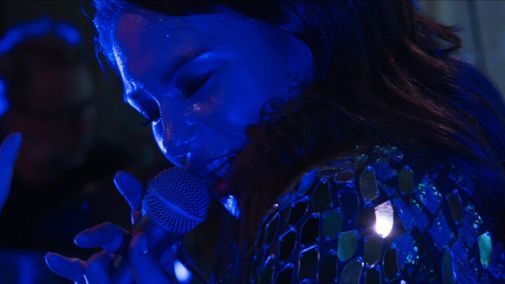
6. EVER DEADLY (dir. Chelsea McMullan and Tanya Tagaq)
A real surprise that I only saw because I liked the poster artwork. I watched many musician artist biographies this last year, most of which were middling (after films about Little Richard, Buffy Saint-Marie, The KLF and others, I got halfway through Joan Baez: I Am a Noise before I had to swear of the subgenre completely for the rest of the year). But this one, about traditional throat singer Tanya Tagaq was like a shot of adrenaline from the Arctic Circle. Tagaq co-directed with Chelsea McMullan, a Canadian filmmaker whose My Prairie Home, another out-of-the-box musician bio-doc (that time trans folk artist Rae Spoon), I was a big fan of out of Sundance in 2014. Immaculate and immersive editing with a lot of powerful up-close camerawork for a thrilling exploration of anger, politics, trauma and identity through song.
Watch on YouTube, Amazon, Apple, KinoNow and NFB in Canada.
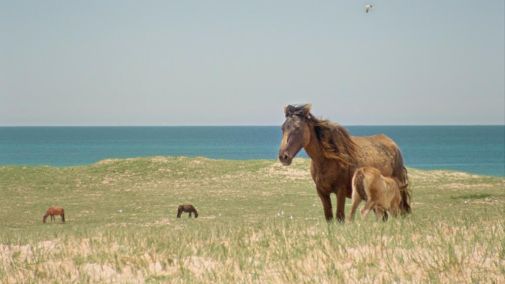
5. GEOGRAPHIES OF SOLITUDE (dir. Jacquelyn Mills)
A nature documentary unlike anything from David Attenborough; a naturist biography far removed from anything you’ll see about Jane Goodall. Shot on Sable Island with its wild horses, skeletons buried by dunes, bugs and beetles feasting on flesh, a lifetime of discarded balloons and a house sinking into the sand. A film of scratchy, windswept soundscapes and elegant images interspersed with miniature experimentations worthy of the medium’s hay day. Yet somehow a film far less abstract than Enys Men, a dramatic spooky flick from 2023 about peculiarly similar subject matter.
Watch on Ovid, YouTube, Amazon, Apple and CMC/Vimeo in Canada.
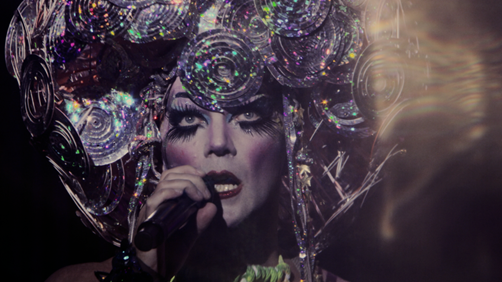
4. TAYLOR MAC’S 24-DECADE HISTORY OF MUSIC (dir. Rob Epstein and Jeffrey Friedman)
From my review: “Through song, spoken word, and flamboyant theatricality, [Taylor Mac] tells the story of the United States of America, using music to celebrate all kinds of humanity and asking us as an audience to see ourselves and our struggles across time.I cons of queer non-fiction cinema, Rob Epstein and Jeffrey Friedman, have captured this show into a neat and tidy 106 minutes with verve and a clear line of sight to Mac’s sensibilities. For the directors, it is another essential queer classic to rank alongside The Times of Harvey Milk, The Celluloid Closet and Common Threads: Stories of the Quilt”.
Watch on Max.
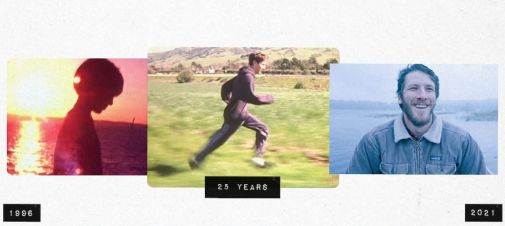
3. SAM NOW (dir. Reed Harkness)
From my review: “Like the filmmaker himself, Sam Now begins with exuberant abandon, throwing at us style and frenetic editing with an eagerness to show the audience his directorial talents. Harkness’ youthful experimentations look an absolute riot and I hope a physical release of the movie in the future will include them. Sammy Fabelman could never! But as he ages out of camera tricks and superhero shenanigans, and as Sam’s grows from a child to a man, the filmmaking matures as well.”
Watch on Criterion Channel, YouTube, Amazon, Apple

2. MENUS-PLAISIRS – LES TROISGROS (dir. Frederick Wiseman)
Around the two-hour mark of this four-hour feat, I took a self-imposed intermission in order to make dinner. I had a bowl of pasta from a packet made with sauce from a jar and chicken from a bag. If I describe it as looking like "the nipples of Venus" then maybe I could have pretended I am at this restaurant. But I would not and I am not and so I must continue with my life merely watching this sort of stuff rather than partaking in it. In the grand scheme of things, I’d rather have that and nothing at all. Between this and The Taste of Things, I am convinced that French people are all taking us for one hell of a gag. And Wiseman, at 94 years of age, just keeps churning out masterful delicacies all his own.
Watch at PBS.
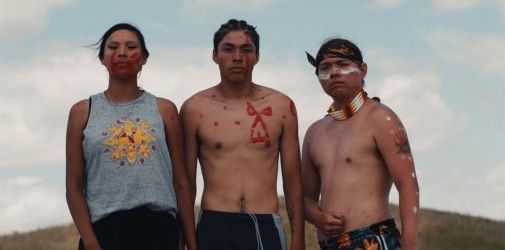
1. LAKOTA NATION VS. UNITED STATES (dir. Laura Tomaselli and Jesse Short Bull)
From my review: “Lakota Nation [vs United States] is a movie full of pain and sadness, yet just as full of hope and desire as it is with vibrating, seething anger. Directed by Laura Tomaselli and Jesse Short Bull (Mni Wanca Wicapi of the Oglala Sioux Tribe), and heavily featuring the writing of Layli Long Soldier, the film is deeply imbued with the spirit, the history, the experiences, the joys and the lives of the First Nations people that is tells the story of—in particular those of the Očéti Šakówiŋ/Lakota/Dakota/Nakota Nation and their connection to the He Sapa, or the Black Hills, that it directly speaks to.”
Watch on AMC+, YouTube, Amazon, Apple
And lastly, you can also find my best of the year list (non-documentary) at my website.